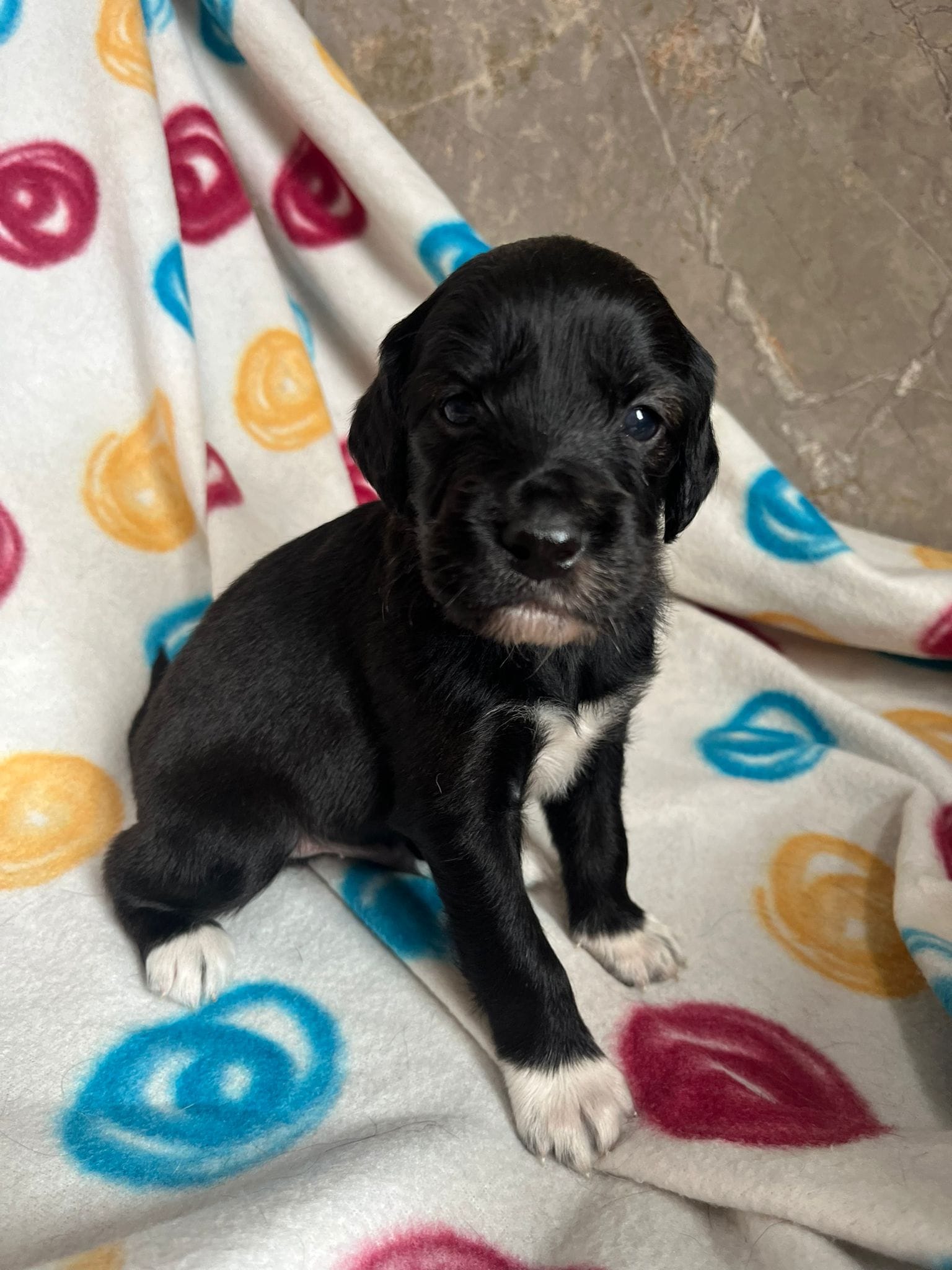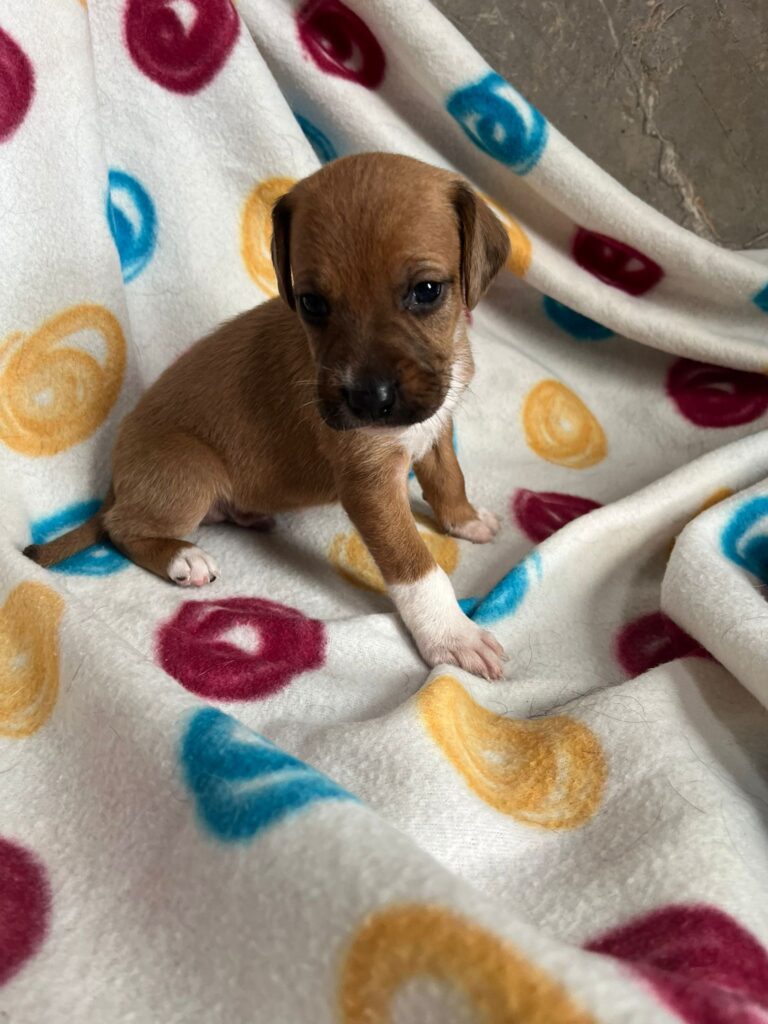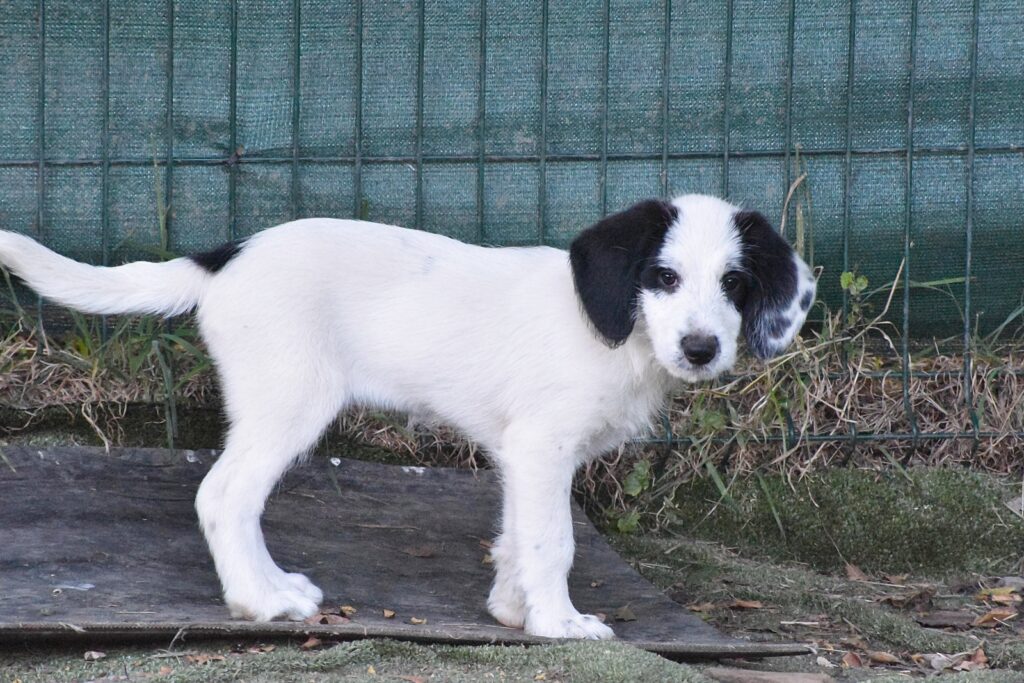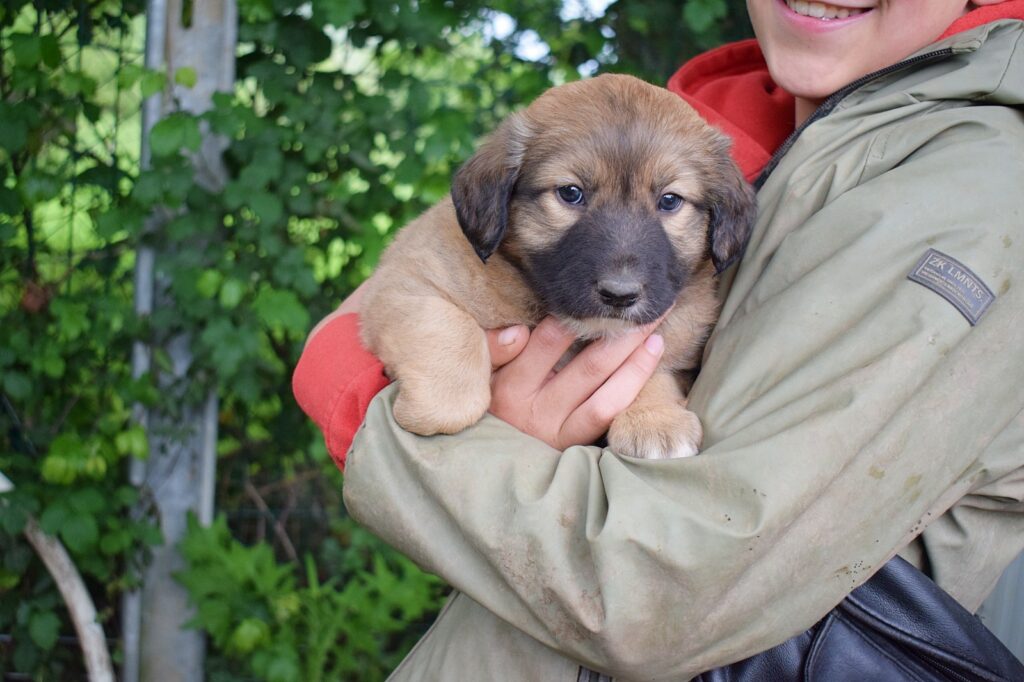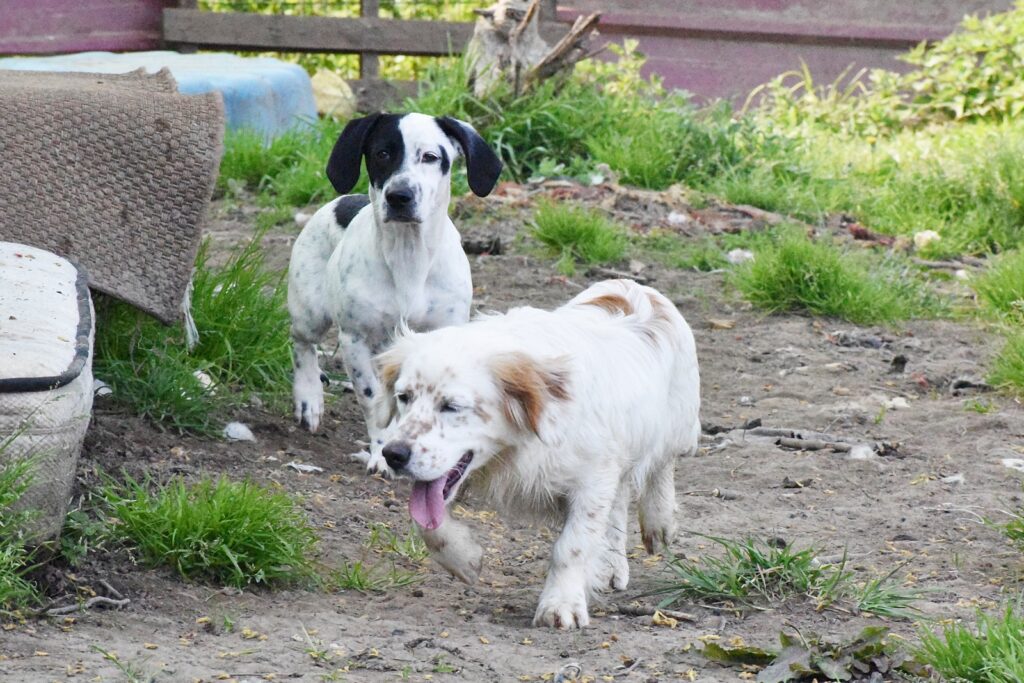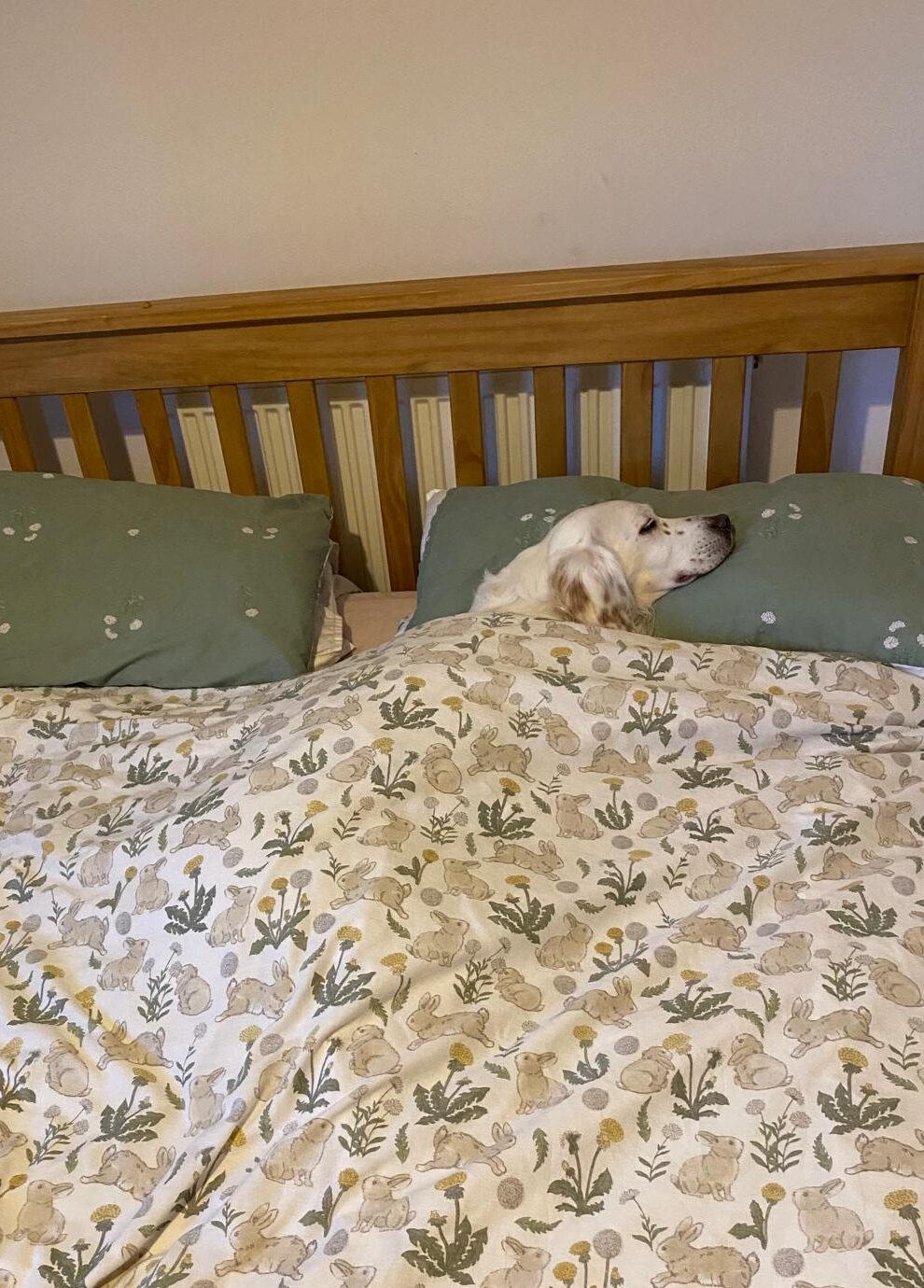So, you’re adopting a puppy…. Congratulations and we hope you’re ready for many years of fun ahead!
Rescue puppies entering the UK must be at least 15 weeks old under import regulations. By this stage, many have already spent much of their young lives in kennels, missing out on crucial early socialisation. Puppies have a critical period for socialisation—up to around 16 weeks of age—when they learn how to interact with people, other dogs, and different environments. Missing out on this window can make the world a scary place for some dogs and increase the risk of fearfulness and anxiety which can result in reactivity.
As a result, many rescue puppies may initially show signs of fear or uncertainty. With patience and gentle guidance, however, they can learn to explore the world with confidence and joy. The key is to introduce new experiences gradually, respecting each puppy’s pace and avoiding too much, too soon.
Steps for socialising an unsocialised rescue puppy:
1. Build trust and confidence
Create a safe space: Provide a comfortable and secure environment for the puppy to retreat to when they’re feeling overwhelmed, such as a nice comfy bed away from high traffic areas in the house.
Positive reinforcement: Use treats, praise, and toys to reward calm behaviour and build positive associations with new experiences.
Confidence building games: Engage in activities that boost the puppy’s confidence, such as puzzle toys, licki mats, and basic training.
2. Gradual exposure
Start with distance: Introduce new sights, sounds, and smells from a safe distance, allowing the puppy to observe without feeling pressured.
Controlled encounters: Gradually introduce other dogs and people, ensuring positive interactions and, as always, rewarding calm behaviour.
Respect boundaries: Pay close attention to the puppy’s body language and avoid pushing them beyond their comfort level.
3. Seek professional guidance
Certified behaviourist: Consult with a qualified canine behaviour consultant for personalised guidance and support. If you need help with finding a qualified behaviourist, please reach out to us for help.
Positive training methods: Focus on positive reinforcement techniques, avoiding punishment or force-based methods.
4. Be patient and understanding
Individual pace: Every dog is different, and it may take time for your puppy to adjust and become comfortable in new situations.
Celebrate small wins: Acknowledge and reward even the smallest steps forward, reinforcing positive progress.
Manage expectations: Be realistic about your puppy’s potential for socialisation, as some dogs may not reach the same level of social interaction as others.
5. Desensitisation and counter-conditioning
Desensitisation: Gradually expose the puppy to things they fear (e.g., loud noises, new people) while keeping a safe distance.
Counter-conditioning: Replace fear with positive associations by pairing the trigger with something your puppy enjoys, like treats.
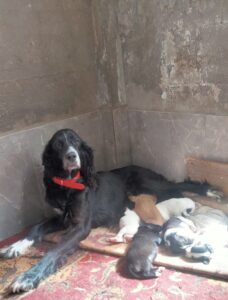
Important things to remember
Avoid busy places (to start with): Busy areas/parks with lots of dogs can be overwhelming for your puppy, so it’s best to avoid them until they’re more confident. Using secure dog fields that you can book privately is a great way of letting them exercise safely.
Keep walks short: Start with short walks in quiet areas, gradually increasing time and length of walks, and exposure to new environments, as your puppy gains confidence.
Communicate with others: Tell people about your puppy’s socialisation needs and politely ask them to put their dog on a lead, avoid approaching or interacting with the puppy if they seem uncomfortable.
And finally, enjoy your puppy, they won’t be this small forever!

